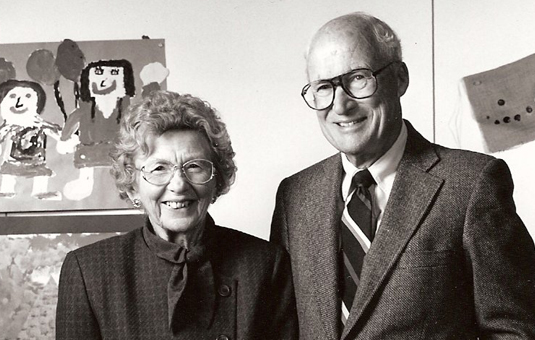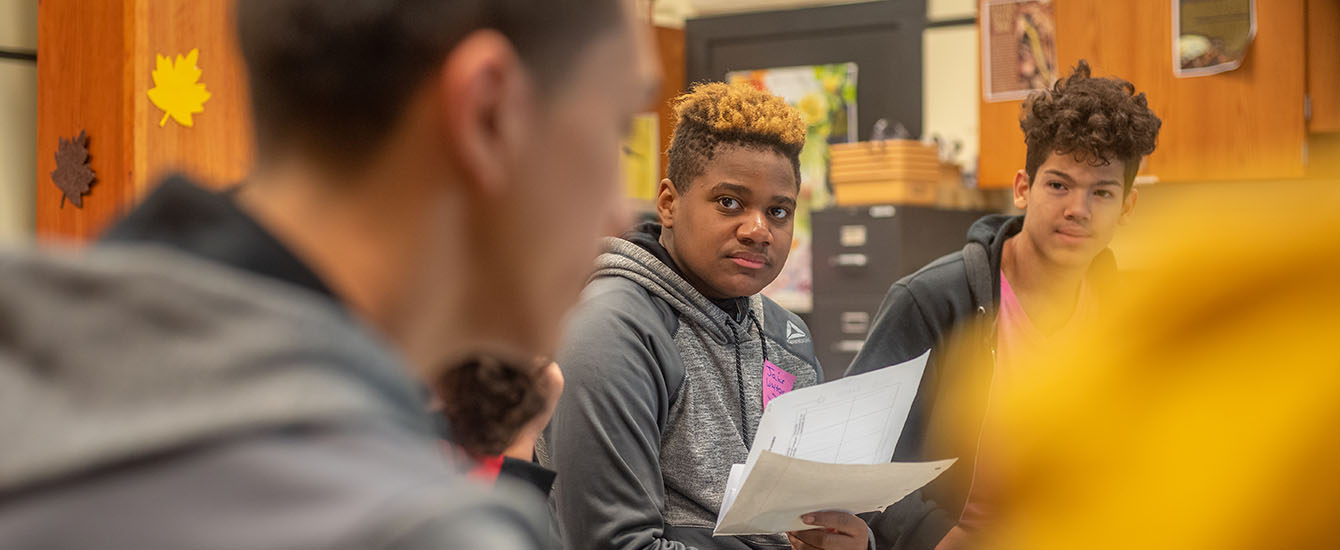Mission
The Adam Institute has a special charge, based on the Adam bequest, to develop and understand teaching that supports all students in realizing their capability and potential and in progressing on a path to college.
To meet this charge, the institute focuses on the development of powerful models of urban teacher preparation, teaching practice, and college-going learning cultures through innovative and collaborative neighborhood-based work with partner schools, including both teachers and students.
Vision
The institute is committed to the development of locally and nationally significant models of university-school partnership, urban teacher preparation, teaching, and school cultures that empower all students, regardless of background, to attend college. The institute integrates these different dimensions of work in various ways, primarily by working within and across partner schools to form learning communities focused on the neighborhood and its students.
Values
The institute’s work is grounded in the belief that an equitable and quality education is the right of all, and necessary for a fair and just democratic society; and belief in the multifaceted capacity and capability of every student.
The institute therefore supports the development of schools with inclusive learning communities and transformative learning cultures built on values of trust, respect, equity, authenticity, integrity, personalization, collaboration, individual achievement, and social betterment. At the same time, the institute recognizes the importance of aligning with broader efforts to create a healthy and sustaining environment for the growth of children, youth, and their families in its urban setting.
History and Accomplishments
 Launched in 2012, the Adam Institute for Urban Teaching and School Practice builds on much of the work done through Clark’s Hiatt Center for Urban Education for almost two decades prior. The work of the institute focuses on three overlapping areas: 1) neighborhood-based University-school partnerships and effective schooling; 2) teacher education that prepares teachers to work with culturally, ethnically, and linguistically diverse students in urban settings; and 3) educational opportunity and college-going support for neighborhood students. The neighborhood education work, in particular the success of University Park Campus School, led to the Adam bequest in 2010 by Jack Adam, a graduate in the 1930s of one of our partner schools, Worcester’s South High School. Adam acknowledged that he might not have gone to college had his mind not been awakened by a teacher who saw more in him than he did in himself at the time.
Launched in 2012, the Adam Institute for Urban Teaching and School Practice builds on much of the work done through Clark’s Hiatt Center for Urban Education for almost two decades prior. The work of the institute focuses on three overlapping areas: 1) neighborhood-based University-school partnerships and effective schooling; 2) teacher education that prepares teachers to work with culturally, ethnically, and linguistically diverse students in urban settings; and 3) educational opportunity and college-going support for neighborhood students. The neighborhood education work, in particular the success of University Park Campus School, led to the Adam bequest in 2010 by Jack Adam, a graduate in the 1930s of one of our partner schools, Worcester’s South High School. Adam acknowledged that he might not have gone to college had his mind not been awakened by a teacher who saw more in him than he did in himself at the time.
Some highlights in our journey include:
2019
Institute faculty collaborate to produce Partnership and Powerful Teacher Education: Growth and Challenge in an Urban Neighborhood (Routledge Press).
The institute launches a teacher diversity initiative in recognition of the important role that teacher diversity can play in student educational experience, attainment, and college aspiration.
2017
The Master of Arts in Teaching program is the first in Massachusetts to earn “approval with distinction.” According to the state commendation, the program “is operating at such a high level that it could serve as a model for other providers in the state and nation.”
2015
Claremont Academy earns Innovation School status.
2014
The institute hosts the Urban Teacher Education Consortium, a nationwide network of teacher educators with a shared commitment to urban teacher education and educational equity that the institute co-coordinates.
2012
The Adam Institute is formally established in the University.
Three partner schools — University Park Campus School (grades 7-12) and the Goddard and Woodland elementary schools — qualify for Innovation School status under the Massachusetts Act Relative to the Achievement Gap (2010), among the very first in Massachusetts to do so. Each has an advisory or governance board with community as well as University representation.
Claremont Academy and the University begin a new partnership commitment. The principal of University Park Campus School, who had been one of the two master’s-level teacher interns in the opening year of the school, agrees to lead Claremont in the rebuilding process.
2007
The program receives the Richard Wisniewski Award for Innovation in Teacher Education from the Society of Professors of Education.
2003
Several UPCS students take a course at the University during their senior year, the first of many to do so. Almost all of the school’s first graduates qualify for postsecondary education, an aspiration that has been fulfilled ever since.
2002
A new clinical, partnership-based and neighborhood-focused Master of Arts in Teaching program, with a full year teaching internship in a neighborhood partner school, gets underway.
1998
U.S. Secretary of Education Richard W. Riley visits University Park Campus School to highlight it as an example of innovation and a commitment to equity.
1997
University Park Campus School (UPCS), a new neighborhood-centered school established for powerful professional as well as student learning, with the promise of a tuition-free college education for qualified students admitted to the University, opens with a 7th grade class.
1995
We institute a clinically-based Master of Arts in Education program that incorporates a yearlong internship for beginning teachers, videotaped Teacher Rounds, and a culminating school-based portfolio presentation.

